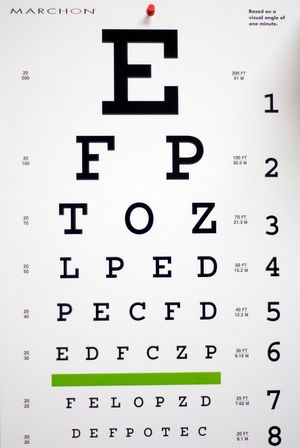The Value of Regular Eye Examinations: Insights From a Seasoned Optometrist
Routine eye tests serve as a critical component of medical care that expands beyond simple vision modification. A knowledgeable eye physician can offer understandings into exactly how these evaluations not just find typical eye problems yet likewise expose underlying health and wellness problems that may otherwise go undetected.
Benefits of Regular Eye Examinations
Although many individuals may overlook the value of regular eye exams, these assessments play a critical duty in preserving overall health and health. Normal eye exams offer not just to examine vision yet also to identify very early signs of systemic health problems, consisting of diabetes and high blood pressure. By recognizing these conditions at their inception, clients can obtain timely interventions, significantly boosting long-term end results.
Furthermore, eye tests can help in keeping an eye on existing health and wellness issues, ensuring that any modifications in vision or eye health and wellness are promptly addressed (optometrist). The analyses enable tailored suggestions relating to eyeglasses, way of life changes, and safety steps versus potential eye pressure or damages
Beyond physical wellness, the benefits of regular eye examinations expand to boosting quality of life. Ultimately, focusing on eye exams fosters an aggressive strategy to wellness administration, empowering people to take charge of their wellness.
Common Eye Issues Detected
Normal eye tests are important in identifying a range of usual eye conditions that can significantly influence vision and overall health. Among one of the most common conditions identified throughout these exams are refractive mistakes, consisting of myopia (nearsightedness), hyperopia (farsightedness), and astigmatism. These conditions usually materialize as blurred vision and can be conveniently fixed with prescription glasses or call lenses.
Another typical concern is glaucoma, a team of eye conditions that harm the optic nerve, frequently linked to increased intraocular pressure. Early discovery is important as it can prevent permanent vision loss.
Age-related macular degeneration (AMD) is one more considerable problem that affects central vision, specifically in individuals over 50. Finally, diabetic retinopathy, a difficulty of diabetes, can result in extreme vision problems otherwise kept an eye on on a regular basis. Through detailed eye exams, these conditions can be identified early, enabling for timely management and treatment to preserve vision and boost lifestyle.
Importance of Early Detection
Very early detection of eye problems plays an important role in preserving vision and preventing considerable wellness difficulties. Many eye illness, such as glaucoma, diabetic person retinopathy, and age-related macular degeneration, can proceed quietly without recognizable signs and symptoms in their onset. By the time symptoms manifest, permanent damages might have taken place, resulting in irreversible vision loss.
Routine eye examinations assist in early diagnosis, enabling prompt treatment and therapy. As an example, treating raised intraocular pressure can avoid the beginning of glaucoma, while taking care of blood sugar levels can considerably reduce the threat of diabetic person retinopathy. Furthermore, conditions like cataracts can be efficiently handled my link with medical treatment when determined early.

How Frequently Should You Visit?
Figuring out the regularity of eye tests is vital for maintaining ideal eye wellness and vision. The general recommendation for adults is to have a comprehensive eye exam every one to 2 years, depending on private risk factors and age.
Individuals with specific danger factors, such as a family members history of eye disease, diabetes mellitus, or existing vision troubles, may require even more constant analyses. Youngsters must have their first eye examination at 6 months of age, adhered to by extra tests at age 3 and prior to going into college. Normal check-ups during youth are vital as vision Going Here can alter swiftly during developmental years.
Inevitably, the frequency of gos to ought to be customized to each individual's scenarios, consisting of way of living, occupational risks, and any pre-existing eye conditions. Consulting with an eye treatment expert can offer tailored referrals, guaranteeing that your eye health is routinely monitored and preserved.
Tips for Your Eye Test
Planning for your eye examination can boost the effectiveness of the visit and make sure a thorough evaluation of your eye health and wellness. To optimize your time with the eye physician, it is crucial to gather appropriate details prior to your visit. Beginning by putting together a checklist of any medicines you are currently taking, consisting of over-the-counter medicines and supplements, as these can impact eye health and wellness.
In addition, record any symptoms you have experienced, such as obscured vision, discomfort, or headaches. This details will certainly aid your eye physician in detecting potential issues.
It is likewise helpful to have a family members background of eye conditions available, as hereditary factors can add to your eye health. Ultimately, my explanation take into consideration arranging your exam for a time when you are less rushed, enabling you to ask questions and review your problems thoroughly. By preparing adequately, you guarantee that your eye test is efficient and that your ophthalmologist has all the required details to give the finest care feasible.

Verdict
Normal eye tests play a critical role in maintaining both vision and general wellness. Eventually, prioritizing comprehensive eye assessments contributes significantly to the conservation of vision and the renovation of top quality of life, underscoring the requirement of routine eye treatment in precautionary health care methods.
Routine eye examinations are instrumental in detecting a range of usual eye problems that can significantly influence vision and total health and wellness.Establishing the frequency of eye tests is vital for maintaining optimal eye health and wellness and vision.Preparing for your eye exam can enhance the effectiveness of the go to and make certain an extensive evaluation of your eye wellness (optometrist). By preparing adequately, you make certain that your eye exam is productive and that your eye physician has all the needed info to supply the best treatment feasible
Ultimately, prioritizing extensive eye analyses adds considerably to the conservation of vision and the improvement of quality of life, highlighting the requirement of regular eye care in precautionary medical care approaches.